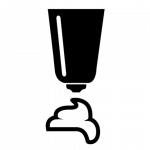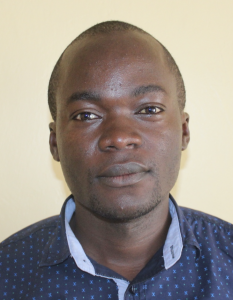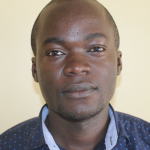Emurumba is located in a rural area that is so peaceful and has vegetation that is a habitat for some animals like snakes, wild cats, and birds. A majority of the buildings here are semi-permanent with few permanent buildings. Most community members are subsistence farmers, though there are those who grow sugarcane to sell as a cash crop and others who venture into livestock rearing for their daily bread.
The day normally starts in Emurumba at 5:00 am when mothers help their children prepare for school. Breakfast is taken before they start engaging in any other activities. There are those who go to the market to buy foodstuffs, while others plow the farm and come back home for lunch. For children who go to school, they spend the whole day at school and join their parents late in the evening and assist them in attending to some chores at home.
Mothers are in charge of fetching water, cooking all of the meals, cleaning the house, doing laundry, washing dishes, and farming. Fathers take the responsibility of taking care of livestock and not forgetting that they have to provide for their families' daily bread. The day ends at 9:00 pm after families take supper together and pray before they go to bed.
Some 182 people in Emurumba depend on water from Makokha Spring to complete their daily routine. In its current state, Makokha Spring is partially reinforced but still unprotected and open to contaminants. There has been some concrete work around the spring, but only to affix a discharge pipe and create a reservoir box that stores murky standing water. The spring box - where the water feeding the spring runs through - and the entire surrounding area is still open to the environment. This includes contaminants from animals, farm runoff, and even people as they step in the water.
There is a small stream that runs through farmland in Emurumba that serves as a secondary water source if the line at the spring is too long or if someone does not feel like walking to the spring. The stream is very shallow, muddy, and also completely open and unprotected. Together, these unprotected water points are the only sources of water for this group of people. The spring is strategically positioned within the village and has adequate water. In fact, it has never dried up. This makes it an ideal candidate for protection.
When safe water is scarce in Emurumba, people drink any other water they can find, regardless that it may be contaminated and would cause a threat to their health. Community members are often diagnosed with waterborne illnesses including typhoid, cholera, and diarrhea, which are expensive to treat. Paying for medical expenses diverts resources that would otherwise be used for family upkeep, like buying food, clothing, and paying school fees.
"We spend the little resources we have on settling hospital bills when our kids fall sick because of consuming contaminated water at times from this water source," said Grace Aswani, and mother and farmer in Emurumba.
"I took my son to the hospital last month and [he] was diagnosed [with] typhoid, and last week my daughter complained of stomachache," said Mohamed Said, a father and teacher in Emurumba who depends on Makokha Spring for his daily water. "The doctor asked me to be watchful of the kind of water my kids consume."
What we can do:
Spring Protection
Protecting the spring will help provide access to cleaner and safer water. Construction will keep surface runoff and other contaminants out of the water. With the community’s high involvement in the process, there should be a good sense of responsibility and ownership for the new clean water source.
Fetching water is a task predominantly carried out by women and young girls. Protecting the spring and offering training and support will, therefore, help empower the female members of the community by freeing up more of their time and energy to engage and invest in income-generating activities.
Training
Community members will attend hygiene and sanitation training for at least 2 days. This training will ensure participants have the knowledge they need about healthy practices and their importance. The facilitator plans to use Participatory Hygiene and Sanitation Transformation (PHAST), Community-Led Total Sanitation (CLTS), Asset-Based Community Development (ABCD), group discussions, handouts, and demonstrations at the spring. One of the most important topics we plan to cover is the handling, storage, and treatment of water. Having a clean water source will be extremely helpful, but it is useless if water gets contaminated by the time it is consumed. We will also emphasize the importance of handwashing.
Training will result in the formation of a committee that will oversee the operations and maintenance of the spring. They will enforce proper behavior around the spring and delegate tasks that will help preserve the site, such as building a fence and digging proper drainage channels. The fence will keep out destructive animals, and the drainage will keep the area’s mosquito population at a minimum.
Sanitation Platforms
On the final day of training, participants will select 5 families that should benefit from new concrete latrine floors. Training will inform the community and selected families on what they need to contribute to make this project a success. They must mobilize locally available materials, including bricks, clean sand, and gravel. The 5 families chosen for sanitation platforms must prepare by sinking a pit for the sanitation platforms to be placed over. All community members must work together to make sure that accommodations and food are always provided for the work teams.

 Protected Spring
Protected Spring
 Rehabilitation Project
Rehabilitation Project










































